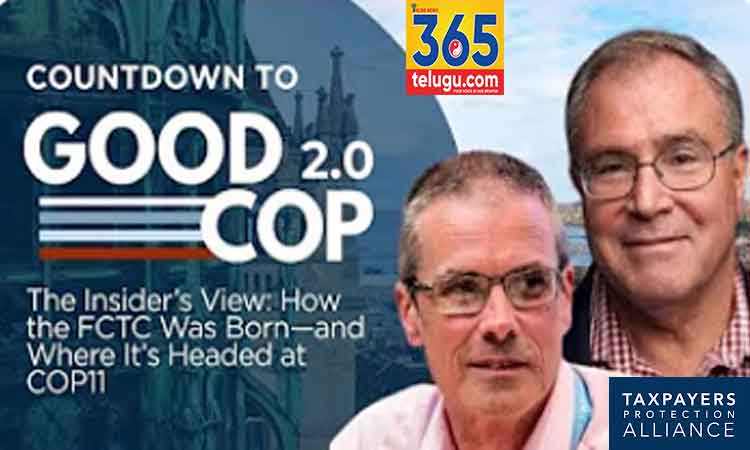365telugu.com online news,India,November 14th, 2025: As governments prepare for COP11 to the WHO FCTC, a recent webinar hosted by the Taxpayers Protection Alliance (TPA) under its Good COP 2.0 initiative reignited debate on the treaty’s direction.
With growing discussions in India and globally around tobacco harm reduction, Dr. Derek Yach—one of the original architects of the FCTC and Martin Cullip, TPA’s International Fellow and harm reduction advocate, called for urgent reform of the FCTC to reflect the realities of modern science and innovation.
The event explored the treaty’s 20-year history and current direction, with both speakers expressing concern that the FCTC — once a groundbreaking framework for reducing global smoking rates, has failed to adapt to scientific and technological advances that could save millions of lives.

Dr. Derek Yach, reflected on how global health innovation has evolved since the treaty’s creation, “The FCTC was developed at the time of the WTO Doha Round that gave highest priority to innovations that led to HIV/AIDS drugs. They have saved millions of lives since.
By contrast, the FCTC failed to anticipate that innovation and science would transform our ability to end smoking. The text is frozen in time and Member States struggle to appreciate that industry innovations are delivering products that are ending smoking and saving millions of lives.”
Martin Cullip noted that the treaty’s original purpose was to reduce the devastating toll of smoking on more than a billion people globally, has been overshadowed by policies that reject innovation.
He shared, “The WHO’s Framework Convention on Tobacco Control has lost sight of its original purpose. It was created to reduce the devastating harm caused by smoking among more than a billion people worldwide.

Yet instead of embracing safer nicotine alternatives that are helping to achieve that goal, it now focuses on restricting them. When even one of the treaty’s own founders expresses concern about its direction, it’s clear the FCTC has drifted far from its mission.”
The discussion underscored a growing divide between evidence-based harm-reduction strategies and WHO’s continued emphasis on prohibition-style policies. Both speakers urged COP11 delegates to consider the latest science on reduced-risk nicotine products and to update the FCTC to reflect today’s public-health realities.
The webinar was part of TPA’s Good COP 2.0 series, which highlights the importance of transparency, innovation, and consumer choice in global public-health policymaking.
According to a 2024 report by the Ministry of Health and Family Welfare, tobacco causes an estimated 1.35 million deaths annually in India and cost over 1% of the country’s GDP.

While India enforces pictorial warnings and advertising restrictions, the ban on e-cigarettes and heated-tobacco products limits access to safer alternatives, making global harm-reduction debates particularly relevant for policymakers.
A full recording of the discussion is available here.

